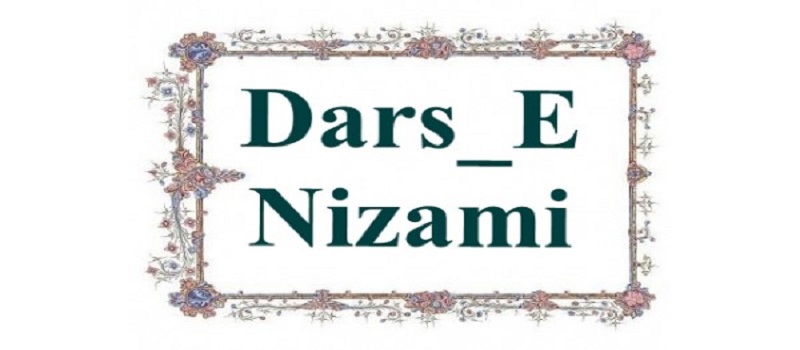Online Darse Nizami Course in Pakistan
Guideline About Online Darse Nizami Course in Pakistan
The Darse Nizami course has been integral to Islamic education, shaping scholars across generations. It provides a structured and comprehensive path to mastering Islamic knowledge, spanning areas like Quranic studies, Hadith, Fiqh, and Arabic language. The advent of online learning has made it possible for students across Pakistan to engage in this traditional Islamic curriculum from the comfort of their homes. Here, we delve into how students can benefit from an Online Darse Nizami Course in Pakistan and explore the key elements that make it a valuable path for knowledge seekers.
What is Darse Nizami?
Darse Nizami is an Islamic studies curriculum designed centuries ago and remains a foundation for Islamic education worldwide. Originating from South Asia, it is a structured program of study that covers core Islamic sciences, helping students build a strong foundation in:
- Tafseer (Quranic Interpretation)
- Hadith (Prophetic Traditions)
- Fiqh (Islamic Jurisprudence)
- Arabic Grammar and Literature
- Logic and Philosophy
Darse Nizami offers an immersive learning experience, with each subject studied in depth. The curriculum’s rigorous approach builds scholars who contribute knowledgeably to their communities and guide others on the path of Islam.
Why Choose an Online Darse Nizami Course in Pakistan?
1. Accessibility for Everyone
One of the most significant advantages of the online Darse Nizami course is accessibility. Students in remote areas of Pakistan now have the chance to pursue Islamic studies without traveling to a specific madrasa or Islamic institute. This convenience makes online courses a blessing for students who wish to study but face challenges related to commuting or relocating.
2. Flexible Learning Schedule
An online format provides students with flexibility, allowing them to study at a pace that suits their schedule. This benefit is especially valuable for working professionals, homemakers, and students managing multiple commitments. Online Darse Nizami courses often offer recorded lectures, live sessions, and downloadable resources, letting students learn and revise as needed.
3. Diverse Learning Resources
Online Darse Nizami courses offer access to vast resources that are not always available in traditional classrooms. These include recorded lectures, notes, e-books, and interactive discussion forums where students can engage with teachers and peers. Such resources help students grasp concepts thoroughly, deepening their understanding of complex subjects.
4. Qualified Instructors and Mentors
One of the strongest assets of online Darse Nizami programs is the quality of instructors. Many courses are led by well-versed scholars and experts in Islamic studies, ensuring that students receive instruction grounded in authentic knowledge. With the help of video conferencing and interactive classes, students can connect with knowledgeable teachers, gaining insights from their vast experience and scholarly expertise.
5. Personalized Learning Environment
Online learning platforms create a personalized space for students. By studying online, students can adapt their environment to support their learning process best, whether by studying with additional resources or revisiting recorded lectures. This personalized approach boosts engagement and retention, helping students confidently progress through the curriculum.
Key Components of the Online Darse Nizami Course
1. Quranic Sciences (Uloom Al-Quran)
A central aspect of Darse Nizami is learning Uloom Al-Quran, which includes Tafseer (interpretation) and Tajweed (pronunciation). Students dive into the Quran’s message, studying its context, language, and guidance for personal and societal matters. Online programs often include Quranic recitation classes, helping students master proper pronunciation.
2. Hadith Studies
The study of Hadith plays an essential role in Darse Nizami. Students learn the teachings of Prophet Muhammad (peace be upon him) and their implications for everyday life. They also explore the science of Hadith classification, understanding the principles of authenticity, isnad (chain of narrators), and matn (text). Online courses provide access to extensive Hadith collections, allowing students to develop a nuanced understanding of prophetic traditions.
3. Fiqh (Islamic Jurisprudence)
Fiqh, or Islamic jurisprudence, is vital for those seeking a comprehensive understanding of Islamic law. In the online Darse Nizami course, students study key fiqh topics, learning how Islamic principles apply to various aspects of life. Topics covered include worship (ibadat), marriage, financial transactions, and criminal law. A deep understanding of fiqh allows students to become guides in their communities, helping others live according to Islamic principles.
4. Arabic Language and Grammar
Arabic is the language of the Quran, and proficiency in it is essential for Islamic scholarship. The online Darse Nizami course includes Arabic grammar (Nahw) and rhetoric (Balagha), which help students understand the nuances of Islamic texts. Students gain access to original Islamic literature by mastering Arabic, enhancing their scholarship and appreciation of Islamic sources.
5. Logic, Philosophy, and Ethics
The Darse Nizami curriculum also covers logic (mantiq) and philosophy (falsafa), which sharpen critical thinking. These subjects enable students to approach Islamic knowledge with analytical skills, making them effective communicators and scholars. Through online discussions and interactive sessions, students can gain valuable insights into how Islamic philosophy addresses modern ethical challenges.
How to Choose the Best Online Darse Nizami Course in Pakistan
1. Course Accreditation
Choosing a reputable institution or organization is essential. Look for online courses accredited by recognized Islamic institutes or taught by qualified scholars. Accreditation assures students that the curriculum adheres to authentic Islamic teachings.
2. Curriculum Depth
A comprehensive Darse Nizami course should include in-depth modules on the Quran, Hadith, Fiqh, and Arabic. Review the syllabus before enrolling to ensure that the course covers all the necessary subjects for a well-rounded Islamic education.
3. Qualified Instructors
Instructors are the backbone of any Islamic studies course. Choose a program led by respected scholars with experience in teaching Islamic studies. Most online Darse Nizami courses provide instructor biographies, which can help students learn about their teachers’ qualifications.
4. Student Reviews and Testimonials
Reading testimonials from current or former students provides valuable insights into the course quality and the effectiveness of the learning platform. Reviews can highlight strengths and potential drawbacks, helping you make an informed choice.
5. Cost and Scholarship Opportunities
While some courses are free, others charge a fee. Look into each institution’s cost structure, scholarships, and payment plans. Some Islamic organizations provide free or subsidized courses, ensuring that financial limitations don’t prevent students from pursuing Islamic knowledge.
Popular Online Platforms for Darse Nizami in Pakistan
Several institutions now offer online Darse Nizami courses tailored to students in Pakistan:
- Baitulnoor – Known for comprehensive Islamic studies and Quranic courses.
- Darul Uloom Online – Provides Darse Nizami courses with experienced instructors.
- Muawin Institute – Offers specialized courses for Pakistani students.
- Jamia Binoria Online – Known for its traditional Darse Nizami program.
- Darussalam Academy – Offers flexible online learning and a recognized curriculum.
Conclusion
The Online Darse Nizami Course in Pakistan is a valuable opportunity for students passionate about Islamic studies. With its flexibility, accessibility, and comprehensive curriculum, online Darse Nizami programs empower students to understand Islam in-depth. Students can achieve significant spiritual and scholarly growth by choosing the right course and committing to their studies.













Post Comment